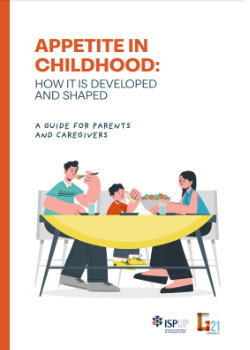Thinking of parents and educators, the Instituto de Saúde Pública da Universidade do Porto (ISPUP) has recently launched an ebook with strategies to help recognise, respect and respond to hunger and satiety signals of children.
Entitled “Appetite in Childhood: how it is developed and shaped“, the ebook presents strategies to help parents and caregivers better understand children’s hunger and satiety signals, presenting ways to shape appetite-related behaviours in children from an early age.
According to Andreia Oliveira, ISPUP researcher, responsible for the coordination of this ebook, “the ebook explores the different factors associated with the development of appetite-related behaviours during childhood. We explain their genetic basis and indicate how they can be shaped by the environment in which the child lives”.
“Given the impact that appetite-related behaviours have on a child’s nutritional and health status, namely on their weight, body composition and cardiometabolic risk, it is important to know how to identify them in time to be able to intervene if necessary,” she adds.
But this task is not always easy, given the heterogeneity of behaviours. “There are children who show a greater approach to food from an early age, while others exhibit food avoidant behaviours. In this book, we present various strategies to deal with these traits”, she says.
The scientific evidence presented in the book was obtained from the data of the Generation XXI cohort study – the first Portuguese birth cohort that follows over time a group of people born at a similar date or period, gathering information at different ages. It includes 8647 children born in Porto (Northern Portugal), in 2005/2006, who were followed-up at 4, 7, 10 and 13 years of age.
This e-book was developed under the umbrella of projects supported by FEDER from the Operational Programme Factors of Competitiveness – COMPETE and through national funding from the Foundation for Science and Technology, I.P. – FCT (Portuguese Ministry of Education and Science): “Appetite regulation and obesity in childhood: a comprehensive approach towards understanding genetic and behavioural influences” (POCI-01- 0145-FEDER-030334; PTDC/SAU-EPI/30334/2017); “Appetite and adiposity – evidence for gene-environment interplay in children” (IF/01350/2015).
It had support from the Epidemiology Research Unit (EPI-Unit: UIDB/04750/2020; POCI-01-0145-FEDER-006862) and Laboratory for Integrative and Translational Research in Population Health (ITR: LA/P/0064/2020).
Image: Jannis Brandt/Unsplash




